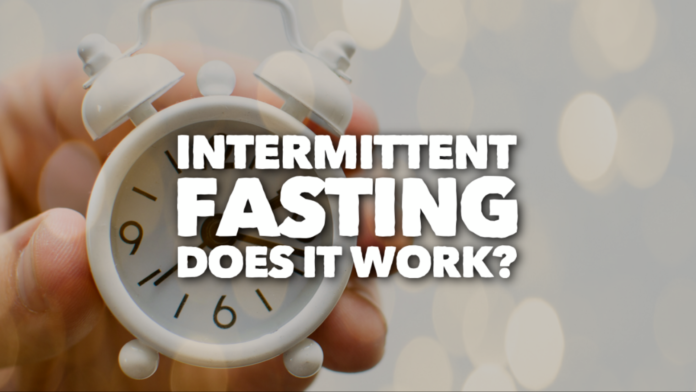Intermittent fasting is an eating plan which switches between eating and fasting between the hours of the day. Research shows that intermittent fasting is a great way to keep your weight in check and prevent or in some cases reverse some diseases.
What is Intermittent Fasting
The majority of the diets rely on “What” to eat whereas in intermittent fasting you are concerned about “When” to eat. With intermittent fasting, You can eat only during a specific time of the day. Fasting for a certain number of hours each day or eating just one meal a couple of days in a week helps in burning body fat and removing fat from the body.
As per the research, our bodies have evolved to be able to go without food for many hours or even several days. In prehistoric times, before humans learned to farm, they were hunters and gatherers who evolved to survive and thrive for a long period of time without eating anything and living on only water.
Even 50 years before, it was easier to keep the weight in check and maintain it as there were no computers and TV shows turned off by 11 pm. People stopped eating at that time and had a routine to go to bed by that time. More people worked and played outside in the open thus getting more exercise rather than sitting in front of TV’s and Laptops
Nowadays entertainments like TV, computers, internet are available 24/7. People stay awake, sometimes all night long just sitting and watching TV having some kind of snacks with themselves. Extra calories and less exercise mean more obesity, a higher risk of type 2 diabetes, heart diseases and other illnesses. Scientific studies show that intermittent fasting helps to reverse these trends when done properly.
How does Intermittent fasting Work?
Intermittent fasting can be performed in several different ways but all those ways require choosing regular time periods to fast and eat. You can select the 16:8 intermittent fast in which you can eat in-between 8 hours and fast for the remainder of 16 hours. Like this, other fasts are 20:4 in which you eat in an eating window of 4 and fast for 20 hours while in 14:10 the eating window is for 10 hours while you fast for 14 hours. After 6 hours of fasting, the body exhausts its sugar stores and starts burning fat from the fat stored in our body. This is known as metabolic switching. Intermittent fasting works by increasing the period when your body has burned through the calories consumed during the last meal you ate and begins burning the extra fat.
What can I eat while intermittent Fasting?
While you are on an intermittent fast, you can have water and zero-calorie drink such as black coffee and tea etc. When you are on normal eating periods, you can eat something healthy and try to eat portion-wise. It does not mean that you start eating high-calorie junk food, super-sized fried food and heavy treats.
You can eat everything healthy while in a fast but keep it minimized to a portion. Also, try to eat your meal with others as it adds satisfaction and supports good health.
Benefits of Intermittent Fasting
Intermittent fasting does more good than just burning fat. Research revealed that a range of health benefits are associated with intermittent fasting such as:
- Thinking and Memory: Intermittent fasting boosts the working memory as well as verbal memory in humans and animals both
- Heart Health: Intermittent fasting improves blood pressure and resting heart rate as well as other heart-related measurements.
- Physical performance: Research showed that people who fasted for 16 hours in a day lost body fat while retaining their muscle mass.
- Diabetes and Obesity: Intermittent fasting keeps obesity in check and helps in loosing weight
- Tissue Health: Intermittent fasting reduced tissue damage in surgery and improved results.
Is Intermittent Fasting Safe?
One of the most frequently asked questions is if intermittent fasting is safe and effective. The answer to this is that through scientific research and medical research it has been deemed safe and healthy. Intermittent fasting is used for weight management while some people use it to address chronic conditions such as irritable bowel syndrome, high cholesterol or arthritis.
But intermittent fasting is not for everyone as it puts a lot of stress and strain on the body.Before starting intermittent fasting, consult with your doctor first. Some people should steer clear of trying intermittent fasting
- Children and teen under the age of 18
- Pregnant Women
- People having diabetes or blood sugar problems
- Those having an eating disorder
People who are not included in these categories can use intermittent fasting for their benefit and good health. Keep in mind that intermittent fasting may have different effects on different people. Consult your doctor if you start experiencing unusual anxiety, headaches, nausea or other symptoms after you start intermittent fasting.
















